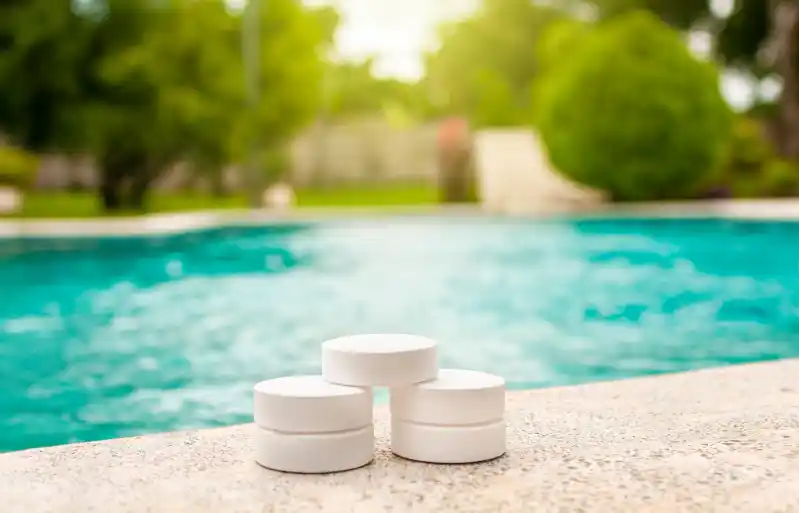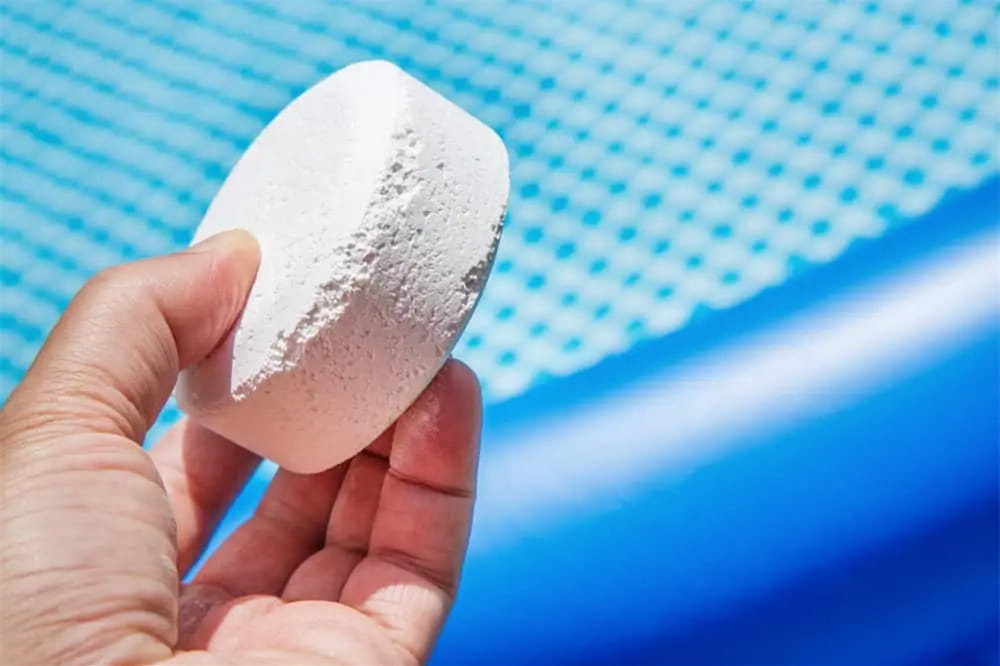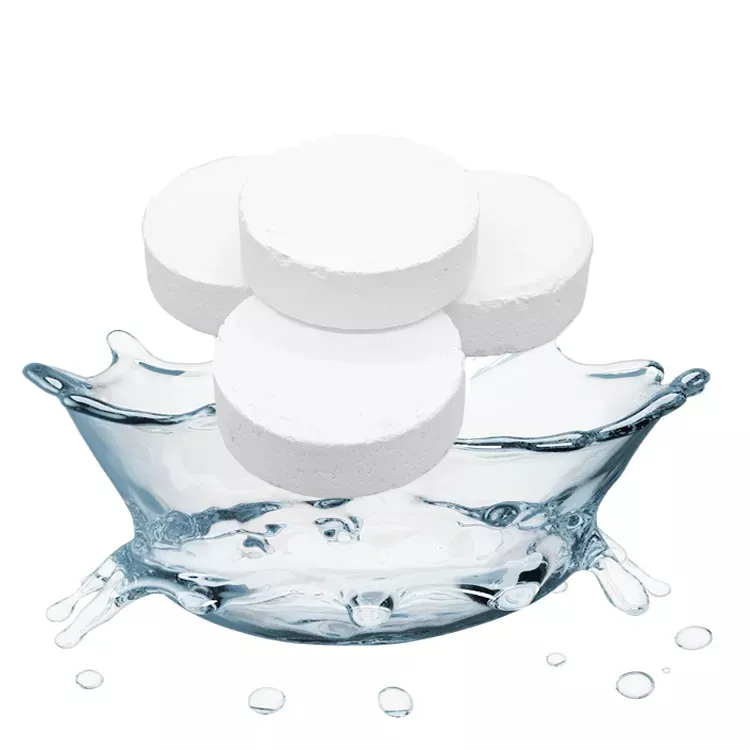Pool chlorine tablets are essential for clear, clean pool water, but even seasoned pool owners can make simple mistakes. Here, we’ll go over common chlorine tablet mistakes and show you how to fix them, keeping you safe and getting the most out of your chlorine tablets.
I. Problem and Solution
Mistake 1: Putting chlorine tablets in your pool directly
Problem
Direct addition of chlorine tablets to the water with no dispenser may result in undissolved chlorine tablets surfacing. This will discolor tile, corrode concrete, or bleach vinyl liners—a common gripe of pool maintenance personnel.
Solution
Use a floating dispenser: Provides slow, uniform dissolution.
Pre-dissolve for effectiveness: Pre-dissolve chlorine tablets in a bucket after heavy pool use for effective disinfection.
Mistake 2: Too much chlorine in your pool
Problem
Excess chlorine (>3 ppm) will irritate swimmers’ skin and eyes. It will also accelerate corrosion on metal fittings and mix with chloramines to create objectionable odors and air problems.
Solution
Administer standard dose: 2-4 grams per ton of water (1-2 tablets per 1,000 liters).
Monitor weekly: Apply test strips to maintain free chlorine at 1-3 ppm.

Mistake 3: Not considering environmental factors
Problem
Sunlight can reduce chlorine effectiveness by up to 50%, rain can dilute disinfectant levels, and heavy bather loads can introduce organic contaminants (e.g., sweat, oil).
Solution
Nighttime dosage: Minimize UV-related chlorine losses.
Post-rain adjustments: Increase dosage by 50% after heavy rain.
Mistake 4: Not handling safely
Problem
Chlorine tablet dust can cause respiratory irritation, and storage can result in accidental ingestion by children or pets.
Solution
Use protective gear: Gloves and goggles are a must.
Store safely: Keep tablets in a child-resistant, sealed container away from moisture and acidic materials.
Mistake 5: Inconsistent Post-Swimming Maintenance
Problem
Swimming leaves behind organic residue (sunscreen, sweat) that requires constant disinfection to prevent bacterial growth.
Solution
Nighttime disinfection: Add chlorine tablets at closing time for around-the-clock disinfection.
Pre-use testing: Test and adjust chlorine levels 1 hour before opening the pool.

II. Best Practices for Optimal Performance
1. Weekly shock treatment
Use a double dose of chlorine tablets to break up chloramines.
2. Enhanced filtration
Use chlorine tablets alongside a high-efficiency filter to reduce chemical reliance by 25-30%.
3. Enhanced swimmer hygiene
Implement pre-swimming showers to minimize organic waste.
Conclusion
Chlorine tablets are a reliable option when used correctly and with caution. By avoiding these common mistakes, it is simple to maintain your pool setting safe and fun.
As a leading manufacturer with decades of experience, our staff is ready to assist you with your chlorine tablet consultation or custom product. Contact us for expert advice tailored to your needs.If you buy chlorine tablets in bulk, we can provide appropriate discounts and customized packaging services.

